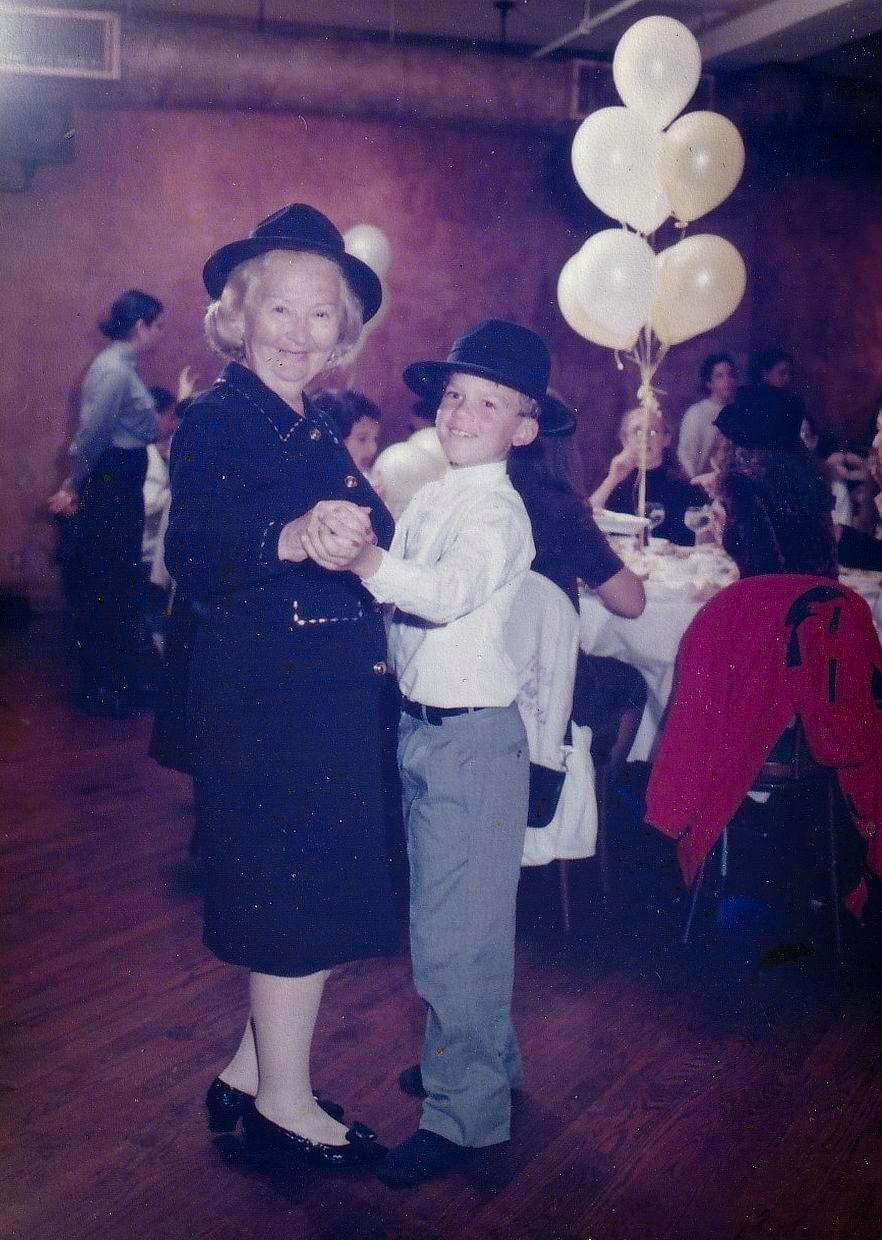As antisemitic hate crimes rise, I see alarming parallels to my grandmother’s childhood during the Holocaust
Just two generations ago, my family was torn apart

Graphic by Angelie Zaslavsky
For many children, story time with a grandparent is a moment of pure joy. But my Holocaust survivor Grandma Ester recounted dire reminders of the hatred that waits in the crevices of society, like a monster under the bed. She didn’t worry that I was too young for the most brutal and disturbing details, because she was too young when it happened to her. She would not shield me from the horror because that would have been a dishonest telling of the terrors she experienced.
My life was never the same after hearing her stories. I am burdened with the knowledge and the duty that most progeny of Holocaust survivors know too well: to keep the memory of the horrors of the Holocaust alive, or be doomed to see them happen again and again. I am alarmed by the rise of unabashed antisemitism in our culture. Since Twitter was taken over late last year by Elon Musk, who vowed to make the platform the “digital town square” for free speech by loosening content restrictions, the frequency of antisemitic tweets has more than doubled. Offline, antisemitic hate crimes rose at least 20% in 2021, and it’s believed that hate crimes further increased in 2022.
As we commemorate Yom HaShoah in 2023, it is important to remember how recent the Holocaust was. Just two generations ago, my family was torn apart. As my Grandma told me as a child, the Holocaust did not happen all at once; it started with dehumanizing rhetoric and individual acts of hate, before progressing to organized mass murder.
Grandma Ester was born in 1929 in the village of Brest-Litovsk — now Belarus, though it was then part of Poland. Sometimes, as she walked to synagogue, non-Jewish members of the community would harass her or throw stones, but she tried her best to ignore them and keep smiling.
When Ester was 12 years old, her village, along with so many other Polish towns, was invaded by Nazi forces. Separated from her parents and her little brother, Beniek, she fled the Nazis with her aunt and cousins. They were taken in by a gentile Polish woman, who concealed the group in a hole under the pigsty of her family farm. They lived in that cramped burrow for six months, until local residents became suspicious, and my grandmother had to flee.
For the next year, Grandma Ester was mostly on her own, surviving by stealing food and water. At night, she would sneak into barns to sleep, search for little caves in dark woods, or return to that Polish woman’s farm to beg for a bed and scraps.
After my grandmother had spent three years total in hiding, Soviet forces finally liberated the Polish countryside in August 1944. Her relief did not last long. Ester soon learned that her father had been murdered by the Gestapo and her mother, grandmother, and toddler brother had all been killed in the Treblinka death camp. She was the only surviving member of her household.
Fleeing the trauma of her scarred homeland, she traveled to Italy, where she stayed in displaced persons camps for the next several years until she emigrated to America to live with her uncle. Here, she got married to my grandfather Jacob (whom she had met in one of the Italian camps), and they had three children, including my mother, Rena.
My mother and grandmother raised me with the imperative “Never Again” — never again will Jews tolerate the genocidal violence we were subjected to during the Holocaust. We must be on the lookout for early warning signs of mobilized hatred and put our full might into holding perpetrators to account.
Today, I see echoes of my Grandma Ester’s story here in America, as antisemitism becomes increasingly normalized by prominent government officials and cultural figures. Last November, former president Donald Trump dined with two vocal antisemites: the rapper Ye — who tweeted he would go “death con 3 on JEWISH PEOPLE” — and white supremacist Nick Fuentes, who denies the existence of the Holocaust. Just this month, 60 Minutes aired a puff piece interview with Trump ally and Congresswoman Marjorie Taylor Greene. Greene, who now has a seat on the House Homeland Security Committee, has peddled conspiracy theories that wildfires are caused by Jewish space lasers.
Hateful words from prominent figures in American society have physical consequences for American Jews. My wife (who is also the grandchild of survivors) and I personally witnessed antisemitic hate displayed as a badge of honor on Jan. 6, 2021, when a mob of Donald Trump’s supporters stormed the U.S. Capitol. Walking through my D.C. neighborhood that morning, I saw men wearing gear with Nazi slogans and SS symbols. It was something I never imagined I’d see in this century.

On that day, my wife and I did something we never hoped to do, but were raised to be ready for: We packed go-bags and created an escape plan in case the neo-Nazis and white supremacists succeeded in their aims. We didn’t know where exactly we would go, but we needed to be ready to get as far away from the site of the insurrection as possible. It’s been a little over two years and I still occasionally look at the “In Case of Emergency” plan tucked into the Notes app on my phone so I’m always prepared.
It has been less than 80 years since millions of Jews were slaughtered by radical right-wing white supremacists, and (depending on the estimate) the number of Jews in the world has still not returned to what it was before the war. Whether it’s denying Nazi sympathizers and white supremacists major platforms on social media or cable news, working tirelessly to crush their ideologies at the ballot box, or calling out organizations and individuals that endorse and fundraise for elected officials that promote violent conspiracy theories, we must not permit antisemitism to become mainstream.
We cannot let the monsters out from under the bed. Never again.
To contact the author, email [email protected].
















